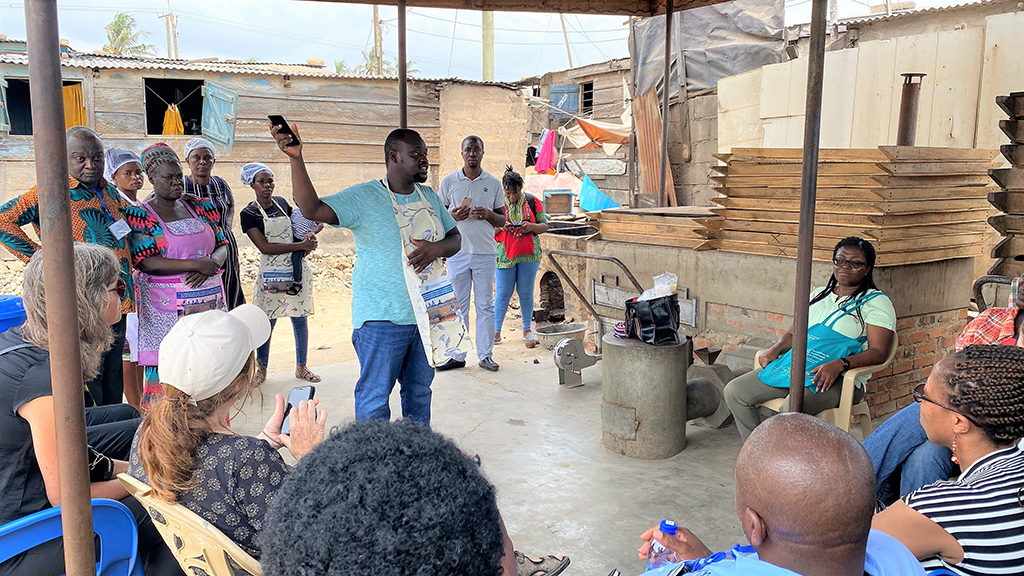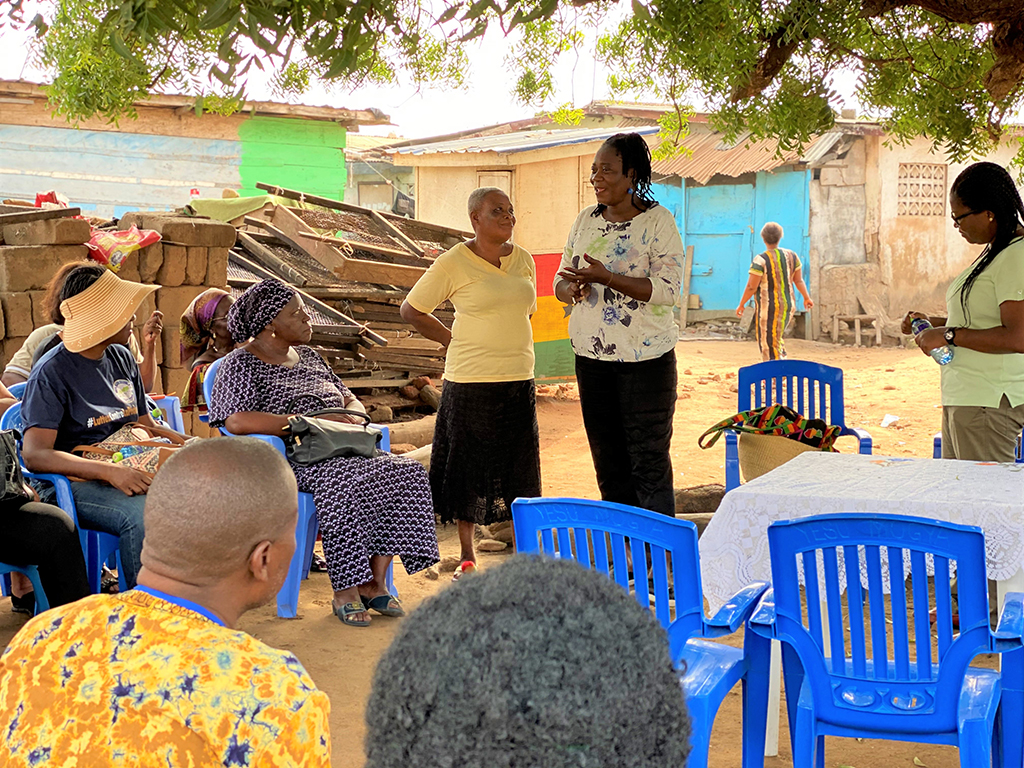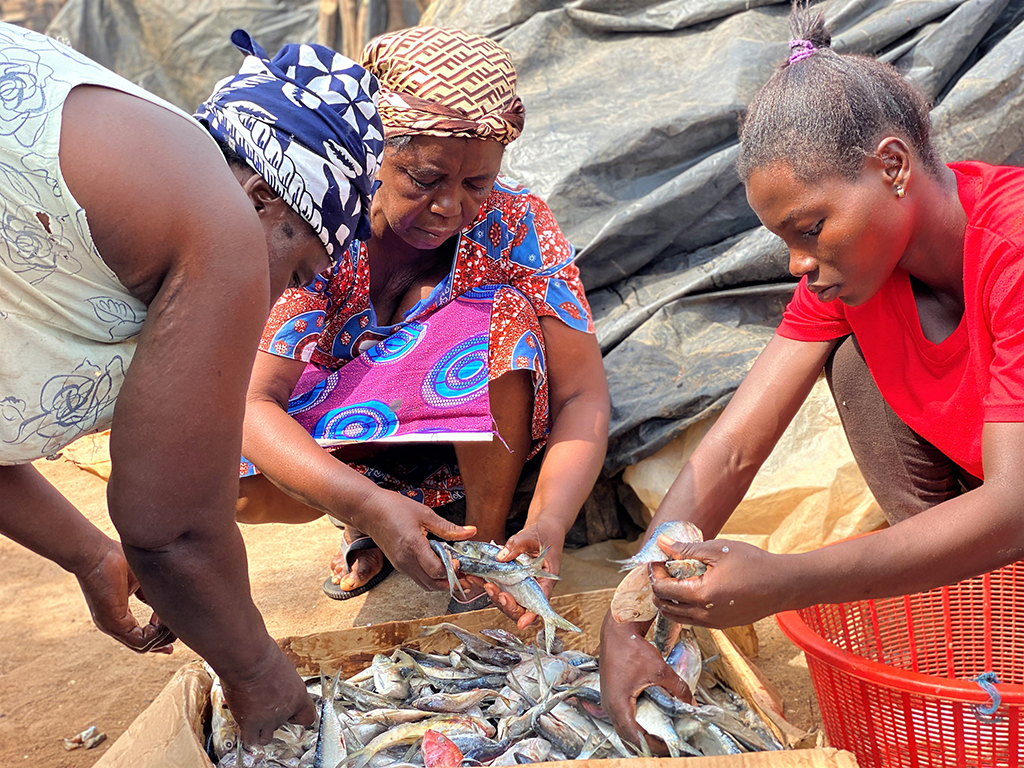Empowering women in fisheries for sustainable food systems – project inception workshop
03/03/2020 - 05/03/2020
Fighting hunger and making sure all have healthy food to eat for months and years to come is certainly nothing new. But how often do we seek solutions through empowering women? A Norad-funded FAO project currently starting up in Ghana, Malawi, Tanzania, Sierra Leone and Uganda places women in fisheries in focus.
 Group photo of the inception workshop participants ©FAO/Diana Glover |
– Empowering women is a sure way to sustainable food systems, the Deputy Minister of Fisheries and Aquaculture in Ghana, Mr Kingsley Ato Cudjoe, pointed out at the opening of the inception workshop for the project last week. The roles these women play in the value chain of small-scale fisheries should be recognized, and they should be actively involved in decision making processes regarding the industry, he continued.
Although almost half of the workers in small-scale fisheries are women, they are often made invisible, and rarely take part in decision-making processes. Mr Kingsley Ato Cudjoe also touched upon that many women have limited access to services and to technology that could ease their work.
– There is the need to encourage them to opt for better technologies which could improve upon their health as well as increase incomes to support their households, the Deputy Minister underlined.
Inception workshop
The inception workshop for "Empowering women in fisheries for sustainable food systems" was convened in Accra, Ghana, on 3-5 March 2020 and brought together some 45 participants, including country teams consisting of government representatives, women in small-scale fisheries associations, and FAO focal points. Representatives from regional organizations, the Norwegian Agency for Development Cooperation (Norad), FAO headquarters and other partners were also present.
The project aims to support the implementation of the SSF Guidelines with a focus on sustainable food systems and support to small-scale fisheries women actors. Funding (NOK 100 M) for this global project has been pledged by Norad for a total of five years with an initial phase of one year (2020), when activities will be focused on Ghana, Malawi, Tanzania, Sierra Leone and Uganda.
During the workshop, the stakeholders received in-depth information about the project and started developing workplans for national and regional activities. The programme also included a where women's groups are involved in fish processing, using traditional and improved fish-smoking technologies.
Support to food systems
So called "food systems" include the production, processing, distribution, sale and consumption of food, as well as subsequent effects on the society, economy and environment. As most women in fisheries food systems work with post-harvest activities – including rinsing, processing and selling fish – the project will focus on empowering women in the post-harvest sector.
A well-functioning post-harvest sector is a vital part of a sustainable food system. If managed well, it can make sure that consumers get more food of good quality to an affordable price; that less food is wasted before it is sold and eaten; and that the people working in the food system can earn enough money to live a life free from poverty.
Build business capacity and reviewing best practices
Activities under the project will include helping individual women and family businesses, professional organizations and cooperatives build and improve skills and capacity in their work and their businesses. Co-developing processing equipment and infrastructure and related arrangements for their use and management, is also included, along with gender transformative training and strengthening of regional women's networks.
The project will furthermore raise awareness about how important it is to eat fish for a nutritious and balanced diet, especially for children. In some of the countries, this translates into making sure fish products are regularly served for lunch in schools. Given that a quarter of the population of sub-Saharan Africa is malnourished, and every fifth child under the age of five is stunted, the change needs to happen already in schools.
At the regional level there will be a review of best practices in the postharvest sector in Africa, and an assessment of the contribution of small-scale fisheries to food security and nutrition and gender roles. The project will also help promote harmonised standards for national and regional products.
As a next step, the country teams who just returned home from the inception workshop will keep elaborating on the national workplans by seeking consultations from a range of stakeholders in the country.
Photos from the field visits to the communities Nungua and Tema ©FAO/Diana Glover |
 |
 |
 |
 |
